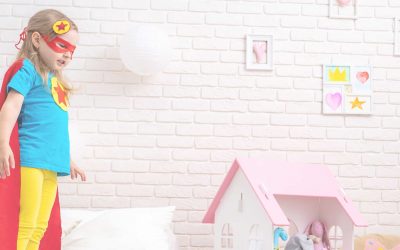Seldom is there more anger than when a mama bear’s cub gets injured. Should a fellow kindergartner toss out a few typical teases, she’ll be forever labeled as a Mean Girl by the other mama bears, for certain. A boy who shoves another boy is a terrible bully. A child who hits must be hit at home. A kid who bites has “something wrong” with them. What is normal childhood behaviour, and what is truly of concern?
I’m no expert, for certain, but I know that as adults, we tend to interpret situations we see our kids in through our own eyes. With that vision comes our years of experience, any baggage we have from when we were younger, and an understanding that social imbalances suck for everyone.
But the thing is, much of what we react over is normal kid stuff. Kids push. They tease. They’re mean. This is normal, and this is exactly why we parents, caregivers, and role models exist. We work to teach them that these aren’t okay behaviours, but we forget that despite them not being acceptable, they’re totally normal. The whole point of being a kid is that you don’t know what being a grown up is all about.
Most grown ups don’t even seem to have a good grasp on it, so why do we expect so much from young kids?
When my son was in junior kindergarten, he came home with a sizeable lump on his forehead. I spoke to some of the other parents about it because they commented on the sheer size (and colour!) of the welt. My son and another kids from his class (who, by the way, stood at least a foot taller than my son) had not been having a fun day together. There were a few verbal spats during the day, culminating in the other kid shoving my son, pretty hard. Hard enough that my son’s forehead caught the corner of a door, and the resulting black-and-blue goose-egg drew some pretty good stares.
Was it okay for the other (older, much bigger) kid to do that? Nope. Was I raging mad ready to tear a strip of him or his parents? Also nope.
Some friends suggested I speak to his mother, who I see regularly dropping her son at school. They suggested I complain to the school, and have the kids monitored more “appropriately” in the school yard.
Yeah, no. The kid hurt my son, but it was okay. It was normal.
The teachers took appropriate action and the child was appropriately reprimanded. The kids were separated, and all was fine.
Kids are still developing coping skills for, well, everything. At five years of age, my son still melts down when I tell him he can’t have ice cream before bed or when I suggest that maybe he should pee one more time before sleep. He can’t cope well with frustration yet; he’s still learning those skills. Sometimes feelings build up and explode out the only way he knows how to express them: physically and verbally. And we walk him through the feelings; we teach him how to appropriately cope, and we move on.
I expect that others are the same, and I don’t go off the deep end when other kids hurt my kids on occasion. I walk them through that situation, too, and explain how we’re all just figuring out how to be people together on the earth. Adults have conflicts, too. It’s part of being human.
I think that as parents, we’re hyper aware of bullying lately because it’s a great buzzword. If someone doesn’t agree, they’re a bully! If a kid steps out of line, they’re a bully! But our definitions are all mixed up, and in our efforts to be more aware, we’re focusing on the wrong things. I wrote about that in another post you might want to read, too.
Look, we all want to protect our kids.
This helicoptering, overprotective, bubble-wrapping, crazed-bear-parenting isn’t helping. We’re raising kids who can’t run in school yards for fear of accidents, kids who don’t know how to socialize properly, kids who don’t trust their own instincts, kids who have no moral compasses. Instead of teaching the skills they need, we’re eliminating the challenges, but the thing is, we can’t do that forever.
Now, don’t misunderstand me. I don’t stand for bullying, emotional or physical abuses from other kids. But my son was in kindergarten and I don’t think any of his classmate were sociopathic monsters. I think they were little kids still learning how to be.
One day kids aren’t kids anymore, and what then?










